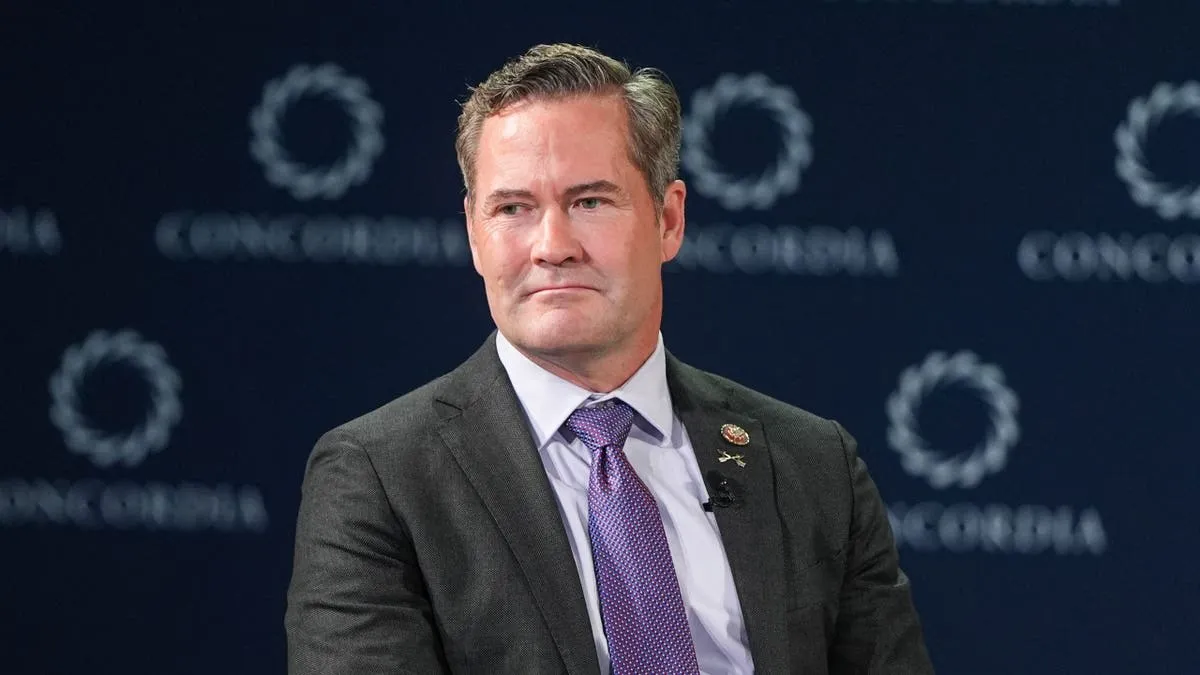Table of Contents
The Signal group chat leak, now dubbed "Signalgate," has triggered a seismic shakeup in President Trump’s second-term White House. At the center is National Security Advisor Mike Waltz, whose accidental inclusion of a journalist in a sensitive Signal chat exposed the administration’s communication vulnerabilities, led to the departure of top officials, and ignited a national debate over information security at the highest levels of government.
Key Takeaways
- Mike Waltz’s accidental addition of journalist Jeffrey Goldberg to a Signal chat discussing Yemen operations led to his resignation as National Security Advisor.
- The breach exposed that senior officials, including the Secretary of Defense, shared sensitive military details over an unapproved messaging platform.
- The incident, quickly dubbed “Signalgate,” raised alarms about the administration’s information security practices and compliance with federal records laws.
- President Trump initially defended Waltz but ultimately accepted his resignation after weeks of mounting political and internal pressure.
- The fallout included the departure of Waltz’s deputy, Alex Wong, marking the first major staff shakeup of Trump’s second term.
- The episode sparked bipartisan calls for an inquiry and renewed scrutiny on the use of consumer apps for government business.
- The White House’s handling of the breach, including public statements and internal debates, revealed deep divisions and concerns about loyalty and competence.
- The scandal has prompted a broader conversation about digital security, transparency, and accountability at the highest levels of U.S. government.
The Accidental Breach That Sparked a Scandal
- In mid-March 2025, National Security Advisor Mike Waltz mistakenly added Jeffrey Goldberg, editor-in-chief of The Atlantic, to a Signal group chat where senior officials were actively discussing imminent U.S. military operations against Houthi militants in Yemen.
- The chat included top figures such as Vice President JD Vance, Defense Secretary Pete Hegseth, and intelligence agency directors, all sharing sensitive details about operational plans, targets, and timing.
- Secretary Hegseth disclosed specific information about airstrikes, including launch times and weapon systems, while CIA Director John Ratcliffe mentioned the name of an undercover officer-details later confirmed by the published transcript.
- Goldberg, realizing the gravity of the conversation, observed silently before removing himself from the group, which automatically notified the other participants.
- On March 24, Goldberg published a partially redacted transcript in The Atlantic, igniting a political firestorm and exposing the administration’s reliance on an unapproved, consumer-grade messaging app for classified discussions.
The breach immediately raised questions about the security of government communications and whether federal records laws had been violated, since Signal’s auto-delete feature was reportedly enabled for the group.
White House Response and Escalating Fallout
- The White House initially downplayed the breach, with National Security Council spokesperson Brian Hughes confirming the chat’s authenticity but insisting there was “no threat to troops or national security.”
- Press Secretary Karoline Leavitt publicly defended Waltz and the team, characterizing Goldberg as a partisan critic and suggesting that the incident was an honest mistake rather than a serious security lapse.
- President Trump expressed “utmost confidence” in Waltz, stating that he had “learned his lesson” and blaming the incident on a subordinate’s error.
- Despite these reassurances, the administration faced intense scrutiny from lawmakers, security experts, and even far-right allies, who called for a purge of officials deemed insufficiently loyal to the president’s agenda.
- As the full transcript was released and the scale of the breach became clear, bipartisan calls for an official inquiry grew louder, with critics highlighting the potential violations of the Espionage Act and federal records requirements.
Behind the scenes, the administration was divided, with some officials shocked by the breach and others concerned about the broader use of insecure messaging platforms for sensitive government business.
Internal Tensions and the Road to Resignation
- The “Signalgate” scandal quickly became a political liability, with sources reporting that Waltz “never really recovered” from the embarrassment, despite his public acceptance of responsibility and repeated media appearances.
- Waltz’s deputy, Alex Wong, was also dismissed, signaling a significant restructuring within the National Security Council.
- President Trump’s initial reluctance to fire Waltz was reportedly influenced by concerns over media optics and internal debates about accountability.
- Far-right activists and some White House advisors lobbied for a broader purge, arguing that the incident reflected deeper issues of loyalty and competence within the administration.
- By May 1, 2025, Waltz’s departure was confirmed, marking the first major staff shakeup of Trump’s second term and underscoring the lasting impact of the Signal chat fiasco.
The administration’s handling of the crisis-oscillating between public defense and private frustration-highlighted the challenges of managing both security risks and political fallout in a hyper-partisan environment.
Security Practices Under the Microscope
- The breach exposed widespread use of Signal and similar apps among senior officials, despite warnings from security experts and the Pentagon about their vulnerabilities.
- Experts noted that Signal’s “linked devices” feature could be exploited by foreign hackers, and that the app is not approved for classified government communications.
- The group chat was reportedly set to auto-delete messages after a set period, raising further concerns about compliance with federal records preservation laws.
- The inclusion of a journalist in a chat discussing active military operations potentially constituted an illegal disclosure of sensitive information to an unauthorized recipient.
- Lawmakers and watchdogs questioned what other sensitive information might have been compromised and called for new guidance or rules governing digital communications within the administration.
This episode has become a case study in the risks of relying on consumer technology for government business, especially when national security is at stake.
Broader Implications for Government Accountability
- The “Signalgate” scandal has sparked a wider debate about transparency, accountability, and the adequacy of current information security practices at the highest levels of U.S. government.
- Critics argue that the administration’s reliance on Signal and similar platforms reflects a broader culture of informality and disregard for established protocols.
- The incident has prompted calls for stricter enforcement of records laws, better training for officials, and investment in secure, government-approved communication systems.
- Some lawmakers have questioned whether the right individuals were held accountable, with criticism directed not just at Waltz but also at Defense Secretary Hegseth and others who shared classified details.
- The episode has underscored the reputational and operational risks that can arise from even minor lapses in digital security and situational awareness.
As the administration moves to rebuild trust and reinforce its security posture, the lessons of Signalgate are likely to shape policy and personnel decisions for months to come.
The Signal chat breach that led to Mike Waltz’s resignation has exposed serious vulnerabilities in the Trump administration’s approach to information security and accountability. As the White House grapples with the fallout, the scandal serves as a stark warning about the dangers of digital complacency in an era of high-stakes national security.
Sources consulted: usatoday, pbs, bbc, axios, CNN







